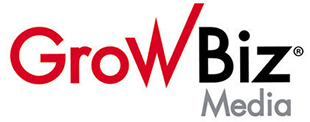Sales tax is part of every small business transaction in the U.S. It’s a line item on every sale, and calculating sales tax rates has a direct impact on customers and checkout totals. However, before a small business can begin charging sales tax it must first register with the appropriate state authorities. For many small businesses, the process of registering to collect sales tax can be confounding, especially as their operations grow into new channels and states. Understanding the nuances of tax registration requirements and tools available to streamline the process can save small businesses time, money, brand reputation, and headache.
Registration is the essential first step to compliance
Before diving into the specifics of sales tax registrations, it’s important to note that when doing business in any state, you can’t start charging sales tax until you’re properly registered. In fact, it’s illegal in most states to do so without the appropriate documentation. Because the entirety of the sales tax journey for businesses begins with registrations, it’s critical that it’s done right. To do so, businesses must first identify where they have nexus – a connection between a business and a state – which is what creates an obligation to collect sales tax.
The role nexus plays in sales tax registrations
There are more than 13,000 sales and use tax jurisdictions in the U.S. For small businesses selling in multiple states, tax obligations can be created through several types of nexus, including:
- Physical presence – Where a business has a brick-and-mortar location or storefront, but may also include physical presence through employee activities, payroll, property, performance of services, or trade show attendance.
- Economic (online/remote sales) – Where a business has annual sales revenue and/or transaction quantities that reach a threshold set by the state.
- Click-through – Where an out-of-state business establishes a physical connection to a state through agreements to reward persons in the state for directly or indirectly referring potential purchasers through links on a website (hence the name), or otherwise.
- Affiliate – Where an out-of-state business establishes a physical connection through in-state affiliates, employees, representatives, or other entities.
Depending on how a business is selling, different types of nexus can trigger additional tax obligations and prompt the need for registration.
The sales tax registration process
Sales tax registration is managed through each state’s department of revenue. While process and rules may vary by state, the process generally follows a similar path:
- Gathering and preparing necessary business information
- Locating the state’s department of revenue website
- Obtaining the registration forms
- Filling out the registration form
- Submitting to the state
Filing out the registration form often creates the most confusion for businesses because of their use of NAICS codes. The North American Industry Classification System (NAICS) is a classification system of six-digit codes that classify businesses by industry. States use NAICS codes primarily for two purposes: compiling data about taxation in different industries, and making sure businesses receive relevant information about new laws, exemptions, or regulations that could affect them. NAICS codes can be very specific, so choosing the right one for your business is essential.
The impact technology can have on the sales tax registration process
From understanding nexus obligations to navigating registration forms for each individual state you sell in, registering to collect sales tax can be a complex, time-consuming process. Fortunately, programs and technology exist today to simplify the process.
Streamlined Sales Tax (SST) is a state-run program aimed at making sales tax compliance easier and less costly for businesses. The program today includes 24 states (Pennsylvania independently runs a program similar to SST) where the states pay for the businesses to use tax technology providers to manage tax compliance in their jurisdictions. These providers, known as Certified Service Providers (CSPs), can handle registration in each state, as well as the rest of the tax compliance process. For obligations outside of SST states, the same technology providers can handle sales tax registrations.
Technology can automate the registration process, which not only saves time and money but can also minimize the risk of non-compliance. As a business grows and expands into new jurisdictions, automated solutions can flag potential new obligations by analyzing sales and identifying potential nexus triggers. Using a single form, automated solutions can prepare the necessary application forms, make payments to authorities, and more. This saves time tracking down each individual form and communicating with each jurisdiction.
As small businesses adopt new channels, open new storefronts, or engage in affiliated business activities, the complexity of registering to collect sales tax grows. Small businesses can benefit from learning the registration requirements for jurisdictions they’re planning to sell into. Likewise, programs and technology designed to simplify tax management can take the bite out of registering as a business grows.
Liz Armbruester is SVP of global compliance operations at Avalara. Liz has more than 20 years of leadership experience from a variety of technology sectors, including media, services, and software.



